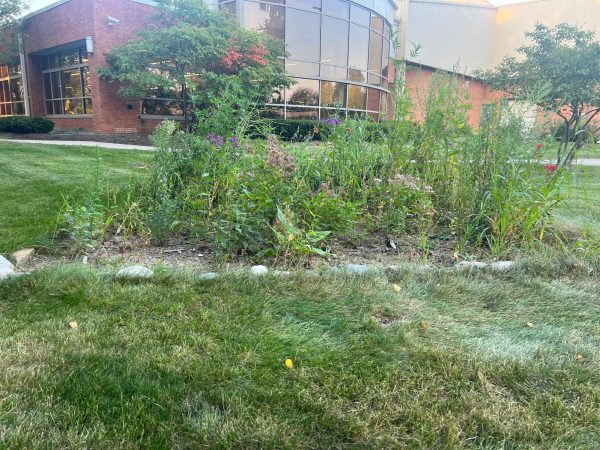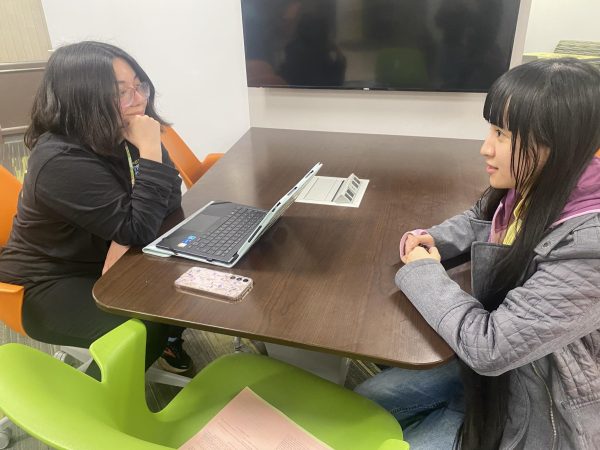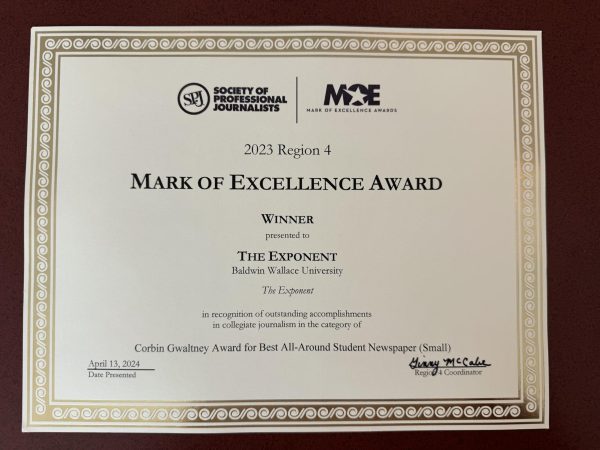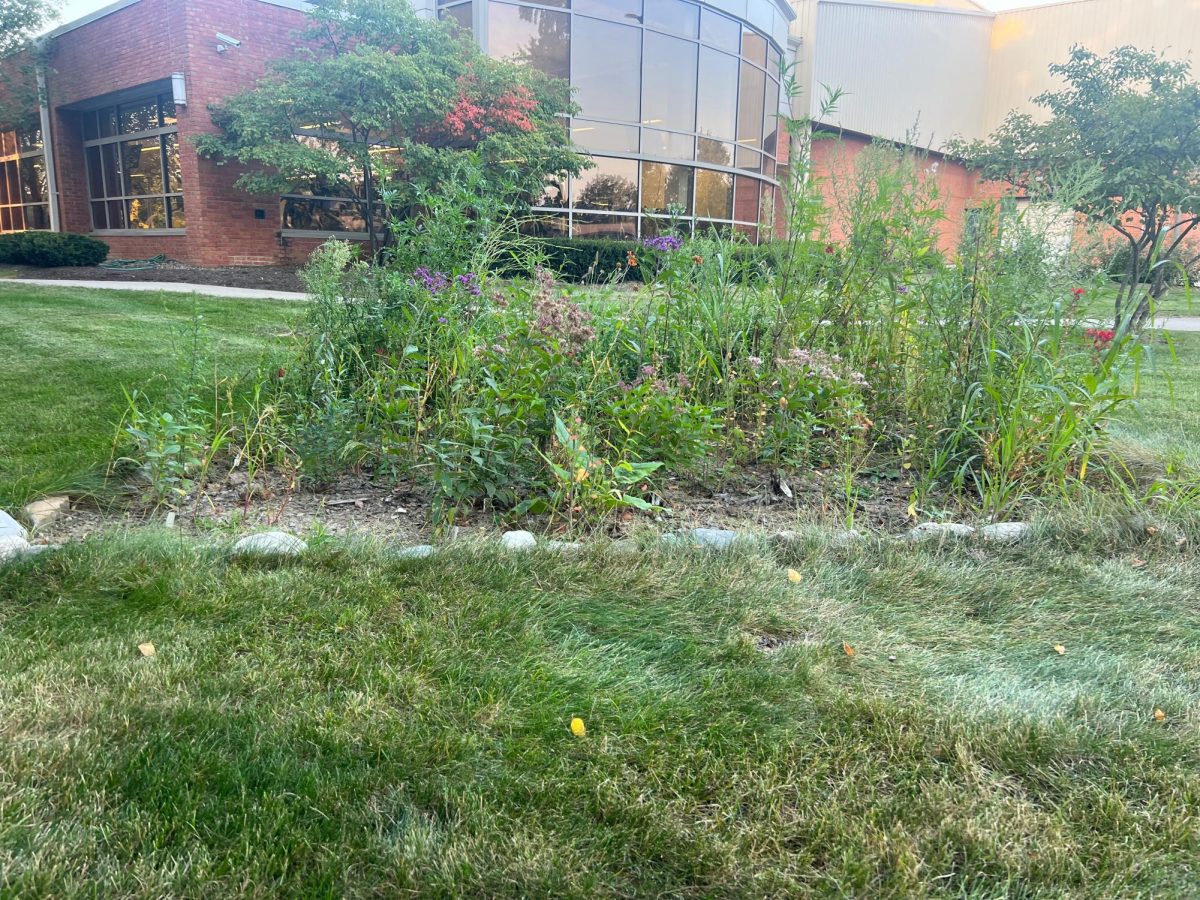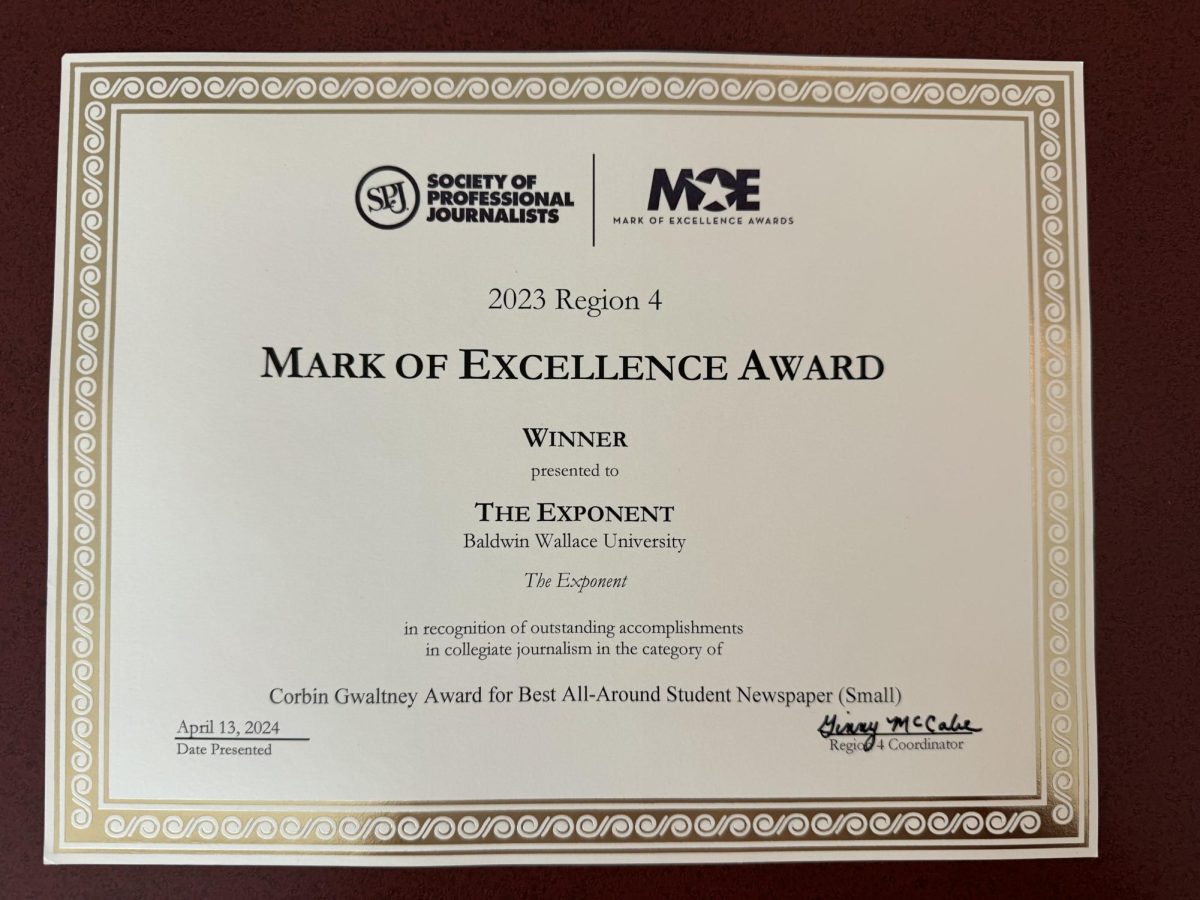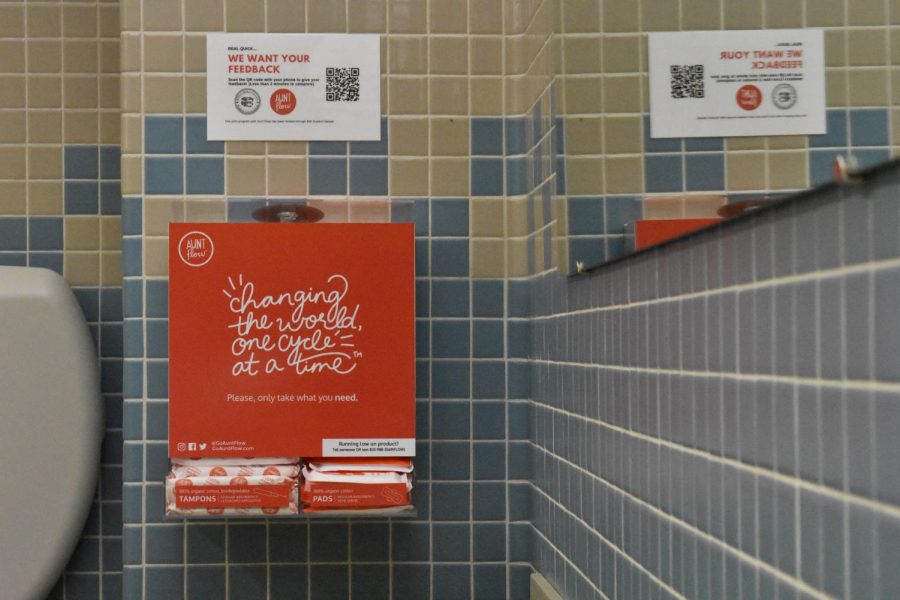Initiative brings free hygiene products to campus
Baldwin Wallace’s Student Senate has passed a bill in favor of the Flow Forward initiative: a program that puts free feminine hygiene products in bathrooms across campus.
The main reason for this initiative was to help students who do not have access to these products feel comfortable at school, and therefore not miss classes because they can’t afford to buy these products or didn’t pack them, said Ally Crays, president of the student body.
Aunt Flow, a non-profit organization that works specifically with universities and businesses, supplied the organic, dye-free, biodegradable products, said Crays.
Currently, there are ten bathrooms on campus that carry the products: three in the Library, three in the Rec Center, three in the Union, and one in Bonds Hall. The Student Senate chose these buildings first, not wanting to select which academic buildings got the products and which ones did not, according to Crays.
After receiving approval from Dr. Robert Helmer, president of Baldwin Wallace University, and Dr. Trina Dobberstein, vice president of student affairs and dean of students, Student Senate went forward with the pilot program.
Crays sought funding from Student Government and the administration, “When [Flow Forward] was presented with some detail, Ally had indicated they were going to seek Student Government funding, which they were successful in,” said Dobberstein. “All along there has been the hope, and still is, that once we get passed this semester and measure the success, there will be possibilities for continued funding.”
The administration was on board with the program. “They trusted that we saw it as an issue and said to go ahead and go forward,” said Crays.
Though this may seem like a women’s health issue, the student government needs feedback from male-identifying students as well, having had some pushback from students saying that this project does not actually benefit all students on BW’s campus, said Crays.
“It makes our community a better place to live in which then benefits the other parties indirectly. We saw it as an issue that is oppressive towards these communities that menstruate and so by helping them out, it’s just leveling the playing field for access to education on this subject,” said Crays.
At this time, the products are located in gender-neutral restrooms because that seemed to make the most sense to start with, according to Crays.
“When we were installing the dispensers, we wanted to make sure that we weren’t only putting them in women’s restrooms because that’s a big misconception, [that] only women menstruate and all women menstruate, which neither of those is true,” said Crays.
Since this is a pilot program, Student Senate must receive enough positive feedback from the BW student body for the program to be secured and continue on, said Crays.
There is a basic petition going around which students can sign saying they recognize the lack of access to feminine hygiene products as an issue on campus and that they support more funding, as well as finding the dispensers useful.
There is a link to a survey on each of the dispensers asking some basic questions, as well. Student government hopes to close the data polls in December and put dispensers in more academic buildings by January, said Crays.
The Exponent is looking for financial contributions to support our staff and our newsroom in producing high-quality, well-reported and accurate journalism. Thank you for taking the time to consider supporting our student journalists.


